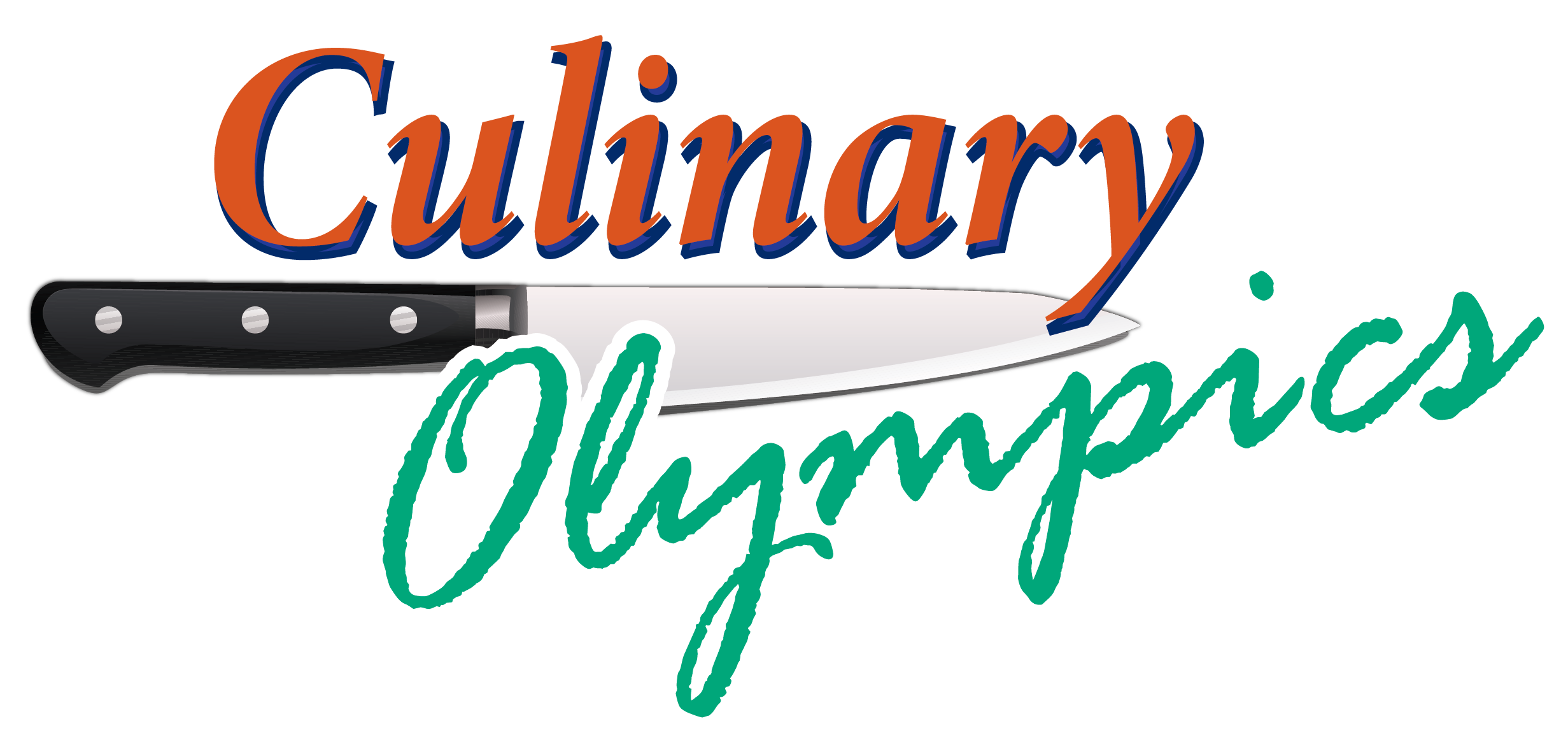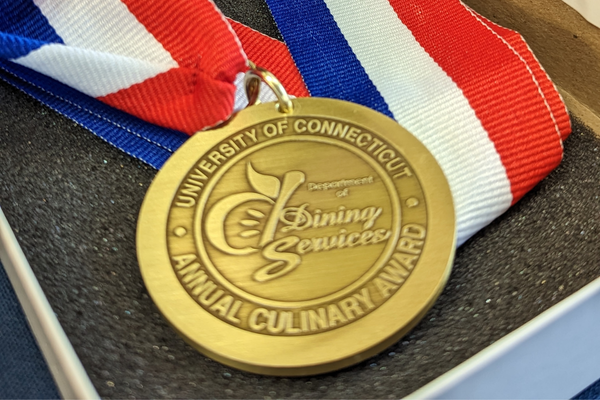
2026 Culinary Olympics – Event Details
Our 25th annual Culinary Olympics will take place on Tuesday, January 13th, 2026, in Connecticut Dining Hall on the UConn Storrs campus.
Event is free and open to the public.
GPS: 622 Gilbert Road, Storrs, CT 06269 (parking available in lots behind Connecticut Hall)
What is it? Our Culinary Olympics is an annual event showcasing the skills of UConn Dining chefs through an individual recipe competition in the morning and a team-based “Chopped”- style competition in the afternoon. For the recipe contest, dishes are prepared on site and must fall into one of the following categories: appetizer-salad, entree, or dessert. Recipes will then be judged on the following criteria: dish creativity, cooking techniques, ingredient use, and taste/texture. In the Boiling Point competition, each team will be presented with mystery ingredients and, using miscellaneous items from our pantry, prepare three different tapas (small dishes or appetizers) on each plate. Teams will have 75 minutes to prepare their dishes for the judges. Teams will then be scored on the following criteria: dish creativity, cooking techniques, ingredient use, and taste/texture. Teams are not allowed to bring or use ingredients not supplied by the competition. The setup for Boiling Point allows guests to get up close to the teams as they strategize, prepare, and get creative with their mystery ingredients.
Why is this held when students are not on campus? A significant number of our staff and chefs are involved with this event. Logistically, we can only hold this event when the majority of our operations are closed for winter break.
Press/Event Contact: Robert Landolphi, Assistant Director for Culinary Development-Robert.landolphi@uconn.edu
Meet Our Judges

Meet our panel of judges for the Recipe Contest and the Boiling Point Contest.
Judges




